#melvin douglas
Text




From Tops # 2, 1949, The Adult Magazine of Dramatic Pictures Melvin Douglas wants you to know about World Government.
You can see the whole thing and the rest of Tops # 2 at.
48 notes
·
View notes
Text

Joan Crawford-Melvin Douglas "Todos besaron a la novia" (They all kissed the bride) 1942, de Alexander Hall.
15 notes
·
View notes
Text
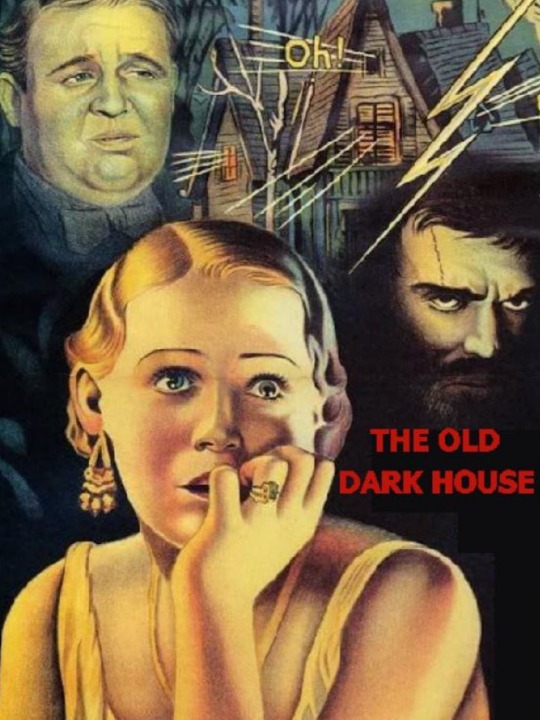
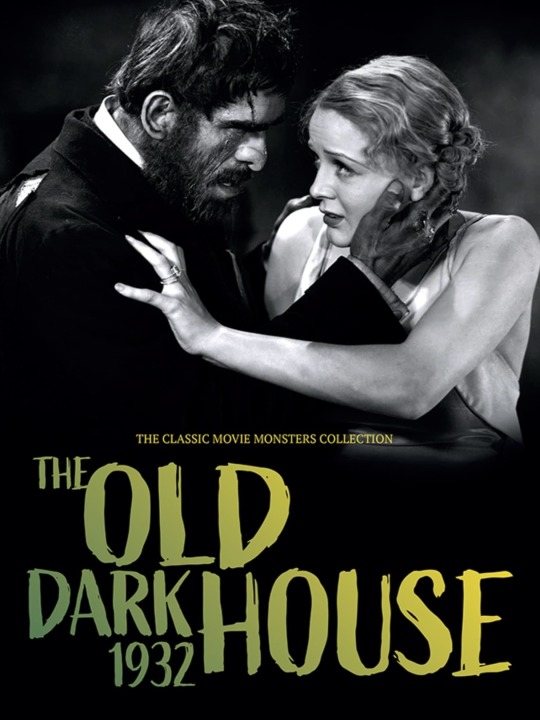
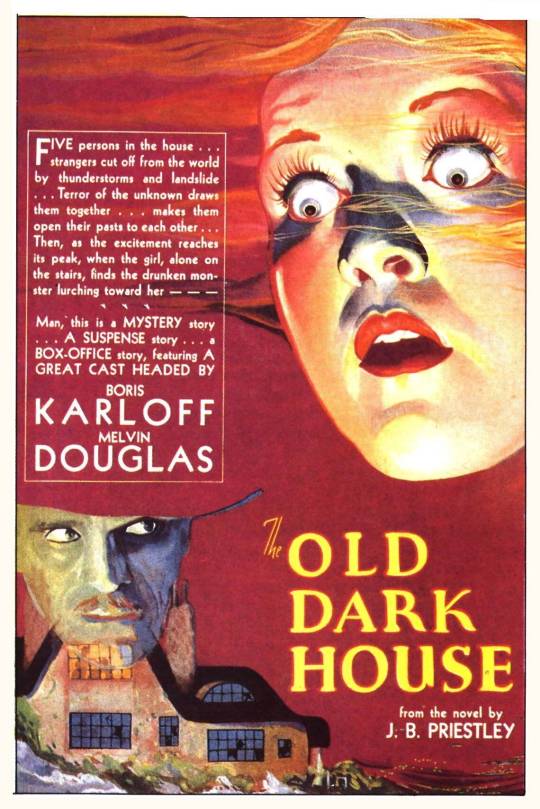
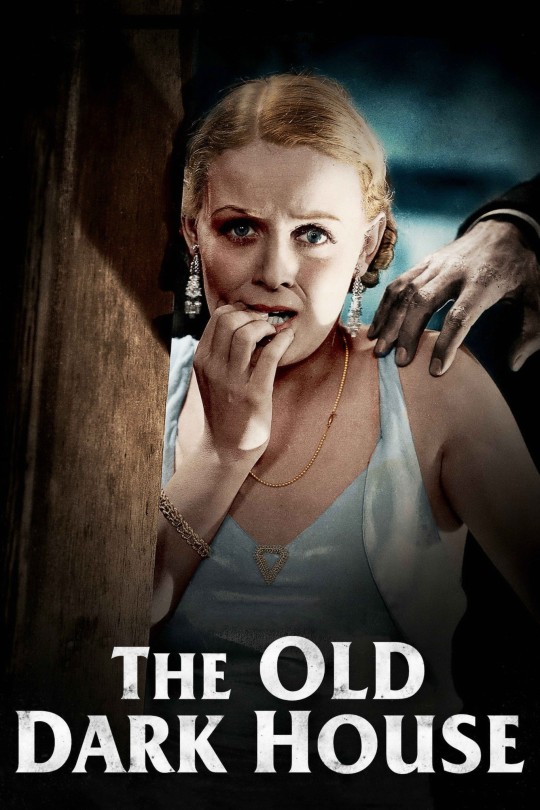
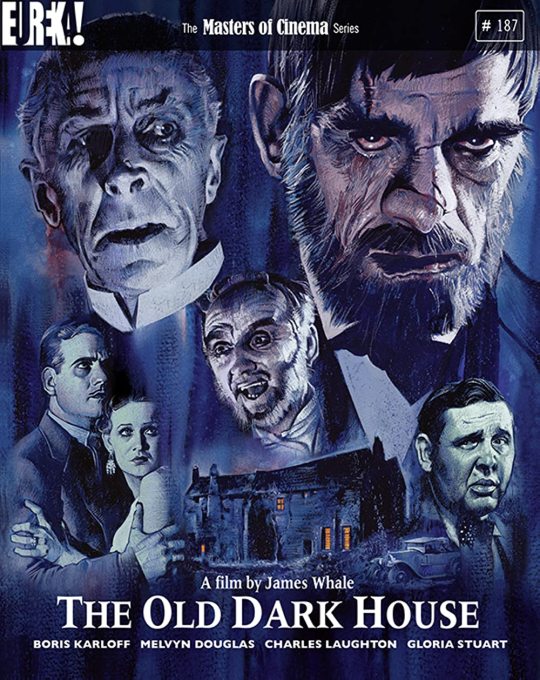
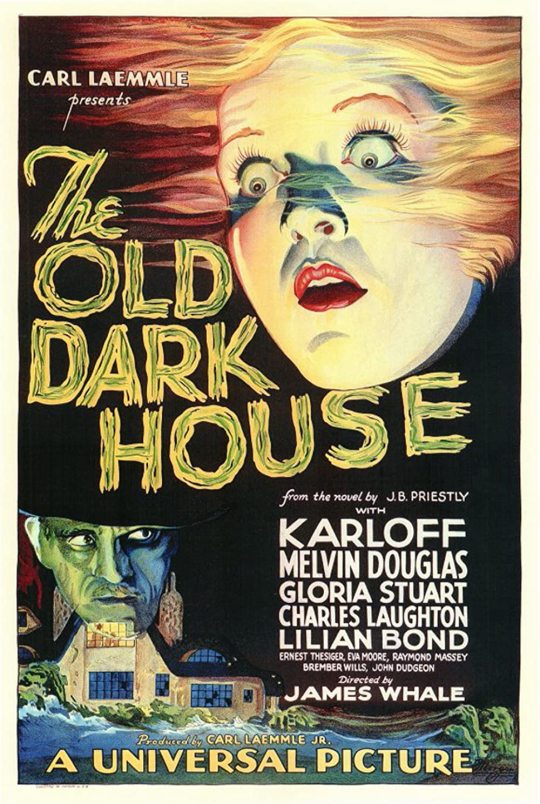
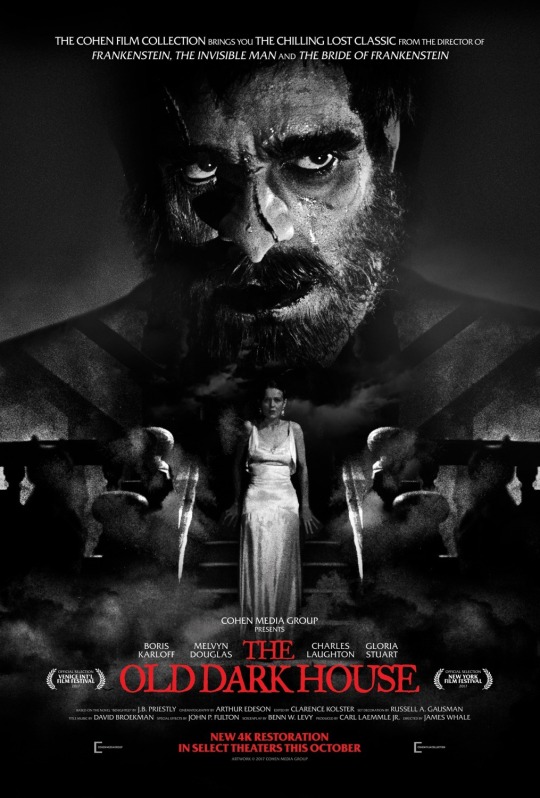
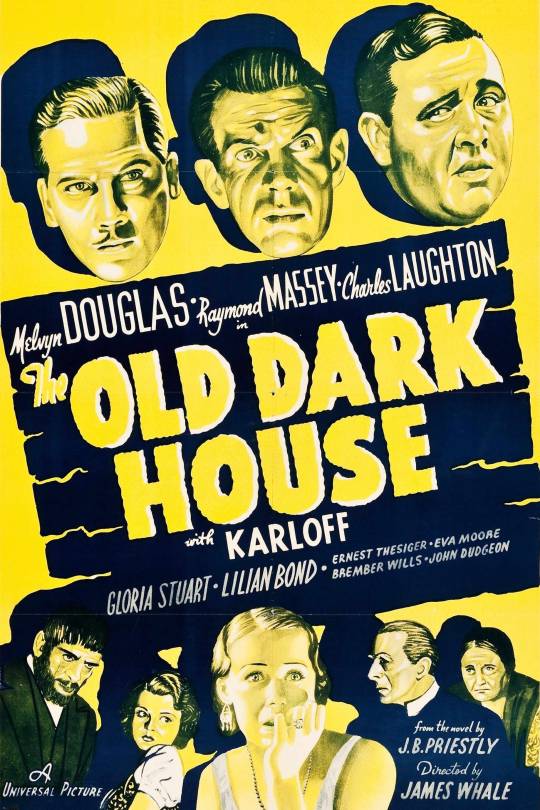
W A T C H I N G
#THE OLD DARK HOUSE (1932)#JAMES WHALE#BORIS KARLOFF#MELVIN DOUGLAS#GLORIA STEWART#CHARLES LAUGHTON#LILLIAN BOND#Ernest Thesiger#Eva Moore#Raymond Massey#Brember Wills#Elspeth Dudgeon#John Dudgeon#comedy horror#horror film#classic films#WATCHING#UNIVERSAL HORROR
51 notes
·
View notes
Text










1947..Spencer Tracy is dictatorial, Hepburn is not happy with that
#spencer tracy#katherine hepburn#robert walker#melvin Douglas#edgar Buchanan#phyllis thaxter#harry carey
0 notes
Text
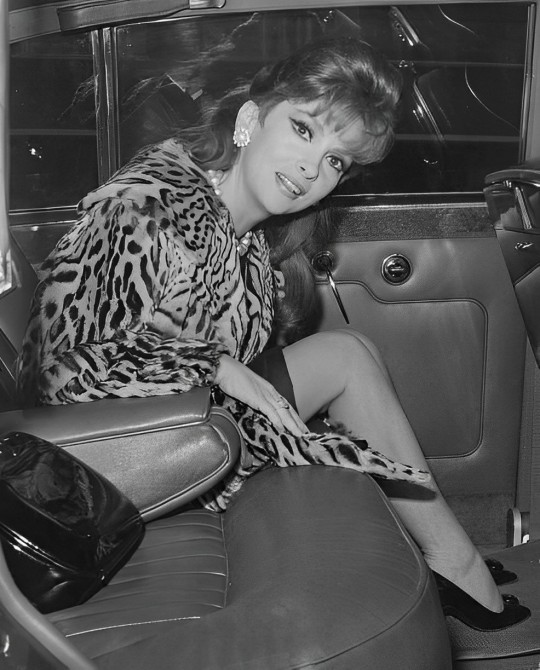
Italian actress, Gina Lollobrigida arrives at London Airport, to attend the premiere of her latest film 'Buona Sera, Mrs. Campbell' (directed by Melvin Frank), at the London Pavilion, February 5, 1969. Photo by Douglas Miller.
L'actrice italienne, Gina Lollobrigida arrive à l'aéroport de Londres, pour assister à la première de son dernier film "Buona Sera, Mrs. Campbell" (réalisé par Melvin frank), au London Pavillon, le 5 février 1969. Photo par Douglas Miller.
#gina lollobrigida#italian actress#italian icon#london airport#buena sera mrs. campbell#melvin frank#london pavilion#february 1969#style 60s#douglas miller
26 notes
·
View notes
Text

The Fantômas/Melvins Big Band: Live from London 2006
Douglas Pledger
USA, 2006
#The Fantômas/Melvins Big Band: Live from London 2006#Douglas Pledger#Fantômas#Melvins#Live from London 2006#2000s#youtube
0 notes
Text
Skins: An Inspired Reading Recommendations List
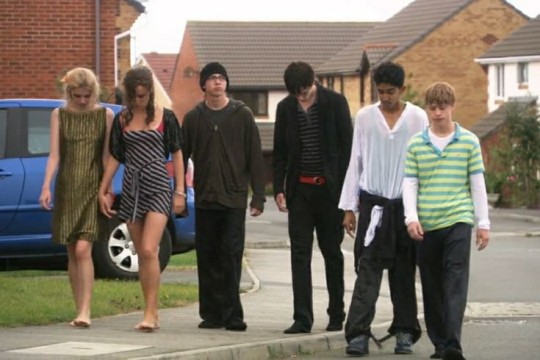
Girl In Pieces by Kathleen Glasgow
Go Ask Alice by Anonymous
The Bell Jar by Sylvia Plath
How It Feels To Float by Helena Fox
Doing It by Melvin Burgess
The Perks Of Being A Wallflower by Stephen Chbosky
A Little Life by Hanya Yanagihara
Lucy In The Sky by Anonymous
What I Lost by Alexandra Ballard
Girl, Interrupted by Susanna Kaysen
Junk by Melvin Burgess
Catcher In The Rye by J.D. Salinger
Tales Of The City by Armistead Maupin
Another Brooklyn by Jacqueline Woodson
Alone With You In Ether by Olivie Blake
Young Mungo by Douglas Stuart
#books#book blog#booklr#readblr#book reccs#book recommendations#bookaddict#bookblr#bookworm#books and reading#skins uk#mental illness#mental health#mental health books#skins
4 notes
·
View notes
Text
Aamir Aaron Abdul Adam Adan Adel Adonis Adrjan Adrjen Aidan Aiden Aja Ajmad Ajmed Al Alajn Alan Albert Alberto Alek Alen Alessandro Alek Alekander Alekis Alfonso Alfrado Alfred Alfredo Ali Alistajr Alistajre Alvin Ameen Amin Amir Amjas Anand And Andre Andreas Andres Andrew Angel Angelo Anselm Antjon Antojne Anton Antonjo Antwan Ari Arjun Armando Arnje Arnold Art Artjur As Asjle Asjton Augustine Aureljo Austin Aver Akel Bajl Bajle Bajleig Baltjassar Barr Barrett Bart Bartjolomew Basjeer Beau Ben Benett Benito Benjamin Benji Bernard Bilal Bjorn Bjron Blade Blajne Blajr Blake Bo Bob Bojd Bojke Brad Bradford Bradle Bram Brandon Brant Brantle Brenan Brendan Brendon Brenon Brent Brenton Bret Brett Brik Brjan Brjke Broderik Brodje Brok Bronson Brook Bruke Bruno Dakota Dalas Dale Damjan Damjen Damjon Damon Dan Dane Danjel Darb Darjo Darjus Dark Darnel Darren Darrjl Dav Dave David Davis Dawson Dean Deandre DeAngelo DeJuan Del Demetri Demetrjus Denis Denzel Deon Derek Desmond Dev Devin Devon Dewe DeWitt Dekter Dik Dirk Djego Djlan Djon Dojle Dom Dominik Don Donald Donavin Donel Donje Donovan Donte Doug Douglas Drew Duane Dunkan Dust Dustin Dwajne Dwigjt Earl Ed Edgar Eduardo Edward Edwin Eli Elija Elis Eljas Eljott Elro Elton Elvis Emanuel Emer Emett Emil Emiljo Emor Enriko Enrikue Enzo Erik Ernest Ernje Esteban Etjan Eugene Evan Ezra Fabjo Farouk Faruk Felipe Felik Fernando Ferris Filippo Fin Flint Flojd Forrest Frank Frankisko Frankje Franklin Franko Fraser Fred Frederik Fritz
abe Gabrjel Gage Galen Gar Garet Garret Garrett Gart Gavin Genaro Gene Geoffre George Gerald Geraldo Gerik Gil Gilbert Gilberto Giles Gino Gjorgjo Gjovani Gjuseppe Glen Gord Gordje Gordon Grajam Grajson Grant Greg Gregor Grejson Gu Gus Hajden Hakeem Hal Halim Hamis Hamza Hank Hans Harlan Harold Harr Harrison Harve Hassan Heat Hektor Heljas Hendrik Henr Herb Herbert Herbje Herk Herkules Herman Homer Houston Howard Howel Howje Hudson Hue Hug Hugo Hunter Husajn Hussein Ian Ike Iljam Imani Imanuel Ira Irwin Isa Isaak Isaja Ivan Ja Jabar Jabbar Jaden Jafar Jajden Jajme Jajvaugjn Jak Jakob Jakkues Jakson Jaleel Jalil Jalinson Jamaal Jamal Jamar Jamel James Jamil Jamison Jamje Jan Jane Janike Janikua Janikue Janikuea Jared Jaron Jase Jason Jasper Javjer Javon Jak Jakon Jakson Jean-Luk Jean-Paul Jeb Jebedja Jed Jededja Jeff Jeffre Jem Jerem Jeremja Jermajne Jerome Jerr Jess Jesse Jesús Jet Jetjro Jett Jim Joakujn Joe Joel Jojn Jon Jona Jonas Jonatjan Jonatjon Jord Jordan Jorge Jos Jose Josep Josjua Juan Judd Jude Juljan Juljo Justin Ka Kaden Kajden Kal Kaleb Kaleel Kalil Kalob Kalvin Kameron Kami Kamilo Kare Kareem Karl Karlo Karlos Karlton Karr Karson Karter Kase Kaseem Kasim Kaspar Kasper Kassjus Kedrik Keegan Keenan Keit Kel Kelan Kelvin Ken Kenan Kendal Kendrik Kenet Kenon Kent Kero Kesar Keven Kevin Kile Kim Kimo Kirb Kirk Kit Kja Kjad Kjalil Kjandler Kjanke Kjarles Kjarlje Kjase Kjester Kjet Kjiko Kjle Kjris Kjristjan Kjristopjer Kjrus Kjuk Kla Klajton Klarenke Klark Klaude Klem Klete Kletus Kleve Kleveland Kliff Klifford Klifton Klint Klinton Klive Kod Kolb Kole Kolin Kolton Konor Konrad Konstantine Kor Kore Kosmo Krajg Kris Krisjna Kristjan Kurl Kurt Kurtis Kwame Kweisi Lajne Lamar Lamont Lane Lanke LaRon Larr Lars Lateef Lawrenke Leandro Lee Leland Len Leo Leon Leonard Leonardo Lero Les Leslje Lester Levi Lewis Linkoln Ljam Ljle Ljman Ljndon Llojd Logan Lon London Lonje Lorenzo Lou Loujs Lujs Luka Lukas Luke Lukjus Majmoud Makenzje Malik Malkolm Man Mansoor Mansur Manuel Marjo Mark Marko Markos Markus Markye Markujs Marsjal Mart Martin Marvin Mason Masoud Mateo Matjeo Matt Matteo Mattjeo Mattjew Maurike Mak Makimiljan Makwel Mejdi Mel Melvin Miguel Mika Mike Mikjael Miles Milo Mitk Mitkjel Mojamed Mont Monte Morgan Morris Names Nat Nate Natjan Natjanjel Ned Neil Nelson Nestor Nevile Nigel Nik Nikjolas Niko Nikola Nikolaus Nils Nino Njels Noa Noe Norm Norman Odin Oliver Omar Oogje Orjon Orlando Oskar Otjer Owen Pablo Pajne Palmer Paolo Paris Parker Pat Patrik Paul Pedro Perk Perr Pete Peter Pjerke Pjerre Pjetro Pjil Pjilip Pjilippe Pranav Pres Preskott Preston Kuentin Kujnt Kujnton R Ra Rafael Rafik Rajeem Rajeev Rajim Rajiv Rajmi Rajmond Rale Ralp Ramiro Ramón Rand Randal Randolp Rapjael Rasjaad Rasjad Rasjeed Rasjid Raul Ravi Reagan Reed Reeke Reese Reggje Reginald Reid Reil Rembrandt Remington René Reuben Rek Rik Rikardo Rikjard Rile Ritkye Rjan Ro Rob Robert Roberto Robin Rod Rodne Roger Rojke Rok Rol Roland Rolando Roman Romeo Ron Ronald Ror Roskoe Ross Ruben Rud Rudolf Rudolp Russ Russel Rust Sal Salvador Sam Sameer Samir Samuel Sand Sanja Sankjo Santjago Saul Sawjer Sean Sebastjan Sebi Sergjo Set Sid Sidne Silas Simon Sjad Sjane Sjanon Sjareef Sjarif Sjaun Sjawn Sjdne Sjea Sjeldon Sjerm Sjerman Sjervin Skott Slade Smas Sokrates Solomon Spenker Stan Stanle Stefano Stepjan Stepjano Stepjen Steve Steven Stewart Stone Storm Stuart Sulajman Sven Tad Tajlor Tal Taner Tarik Tate Tawfik Ted Tel Teo Terr Terrel Terrenke Tim Timoty Tjaddeus Tjeodore Tjler Tjom Tjomas Tjrone Tjson Tob Tobjas Todd Tom Ton Topjer Trak Trake Trav Travis Tre Trent Trenton Trev Trevor Tristan Tro Tuk Tuker Tul Turner Van Vanke Vern Vernon Vikram Viktor Vinke Vinkent Virgil Wade Wajne Walker Walt Walter Ward Warren Webster Wendel Wes Wesle Weston Wil Wilfredo Wiljam Wjatt Wjit Wjitne Kavjer Zak Zakjar Zakjarja Zander Zane Zavjer Zedrik Zeke Zepyr
5 notes
·
View notes
Text
Three Cary Grant movies in a row!
Script below the break
Hello and welcome back to The Rewatch Rewind! My name is Jane, and this is the podcast where I count down my top 40 most rewatched movies. Today I will be discussing number 28 on my list: RKO’s 1948 comedy Mr. Blandings Builds His Dream House, directed by H.C. Potter, written by Norman Panama and Melvin Frank, based on the novel by Eric Hodgins, and starring Cary Grant, Myrna Loy, and Melvyn Douglas.
Yes, I’m talking about yet another Cary Grant movie – I warned you there would be a lot of them. In this one, he plays Jim Blandings, an advertising executive who lives in a Manhattan apartment with his wife Muriel (Myrna Loy) and their two children. Tired of feeling crowded, and taken in by an advertisement, they decide to purchase an old house on a large property in Connecticut. They initially resist the idea that the house must be torn down, but ultimately get excited about being able to build one to their own specifications. However, this is not nearly as simple, or as affordable, as they anticipate.
The first time I watched this movie, it was late at night and I was very tired, so I remember almost falling asleep without really getting into it. But I enjoyed it a lot more the second time, and it’s grown on me over the years. I watched it for the first time in 2003, then twice in 2004, and then once each in 2006, 2008 through 2013, 2015, 2016, 2018 through 2021, and then twice in 2022. And while I could barely keep my eyes open the first time I watched it, now I find it difficult to tear them from the screen when the movie is on.
As I’ve said several times in previous episodes, Cary Grant was a brilliant comedic actor, and once again, he is very funny in this movie. Just watching his morning routine in the apartment at the beginning is hilarious. Jim Blandings is very sure of himself, even and especially when he shouldn’t be, and Cary plays that very convincingly and humorously. Myrna Loy is probably best known for playing Nora Charles in the comedy-mystery Thin Man movies, so it should come as no surprise that she is also very funny here. Muriel occasionally tries to rein in some of Jim’s recklessness, but also gets caught up in the dream of the house, and Loy portrays that flawlessly. Apparently critics thought these stars were too old for these roles (they were both in their mid-40s at the time), and that it would have made more sense to show a naïve young couple not knowing how to build a house, but personally I think it works better to show a middle aged couple who have every reason to believe they know what they’re doing find out that they have no clue. The movie also makes it clear that it’s only because Jim is older and more established in his career that he’s able to do this. At one point when he’s venting about how everything’s costing way more than they were anticipating, Jim points out that if he can barely afford it, there’s no way a young couple ever could. And looking at this movie from a modern lens is kind of surreal because like, imagine a single-income family of four being able to afford a house! To put things in perspective, Jim Blandings was making $15,000 a year in 1948, which is the equivalent of approximately $190,000 in 2023, and the final cost of his dream house was $38,000, or approximately $480,000 now. It certainly costs a lot more than he initially thinks it will, but it’s still doable for him – although he does nearly lose his job at one point – whereas it would not have been for a young couple just starting out. And again, Cary Grant and Myrna Loy are so delightful to watch that I cannot comprehend wanting to replace them.
The acting and the writing encourage the audience to laugh at both Jim and Muriel while still finding them sympathetic. There’s a rather beautiful poetic justice in the story of an advertising executive, who spends all day figuring out how to convince people to buy things they don’t need and can’t afford, getting convinced by an ad to build a house he doesn’t need and can’t afford. And yet, we still want him to succeed, and share his frustration when things go wrong. Muriel’s extremely specific demands for the house can be ridiculous, but we still want her to get the dream house she desires. Perhaps her greatest moment in the film is when she spends several minutes describing in detail the exact shade she wants each room painted: one should exactly match the color of fresh butter, one needs to be white – not a cold, antiseptic hospital white, but not to suggest any other color but white; another should be practically an apple red, somewhere between a healthy Winesap and an unripened Jonathan, etc. When she finally gets distracted and walks away, one of the painters says to the other, “You got all that?” and the other replies, “Red, green, blue, yellow, white.” It’s very funny, but also maybe a little bit sexist, in a “These silly women and their ridiculous obsession with detail” way, but at least the movie makes fun of Jim too. He’s constantly taking charge of things he doesn’t understand and making them worse – from illegally authorizing the old house to be torn down to inadvertently instructing builders to rip out their work. So rather than making fun of Jim and Muriel specifically, the movie is really making fun of the gender roles they feel obligated to fulfill, and the way society has made basic needs like shelter immensely complicated to obtain. And while some of that is rather painful to face, this movie manages to make the overall experience mostly enjoyable. It’s thought-provoking without becoming too upsetting.
While a lot of what I love about this movie comes from Grant and Loy, I also love Melvyn Douglas’s performance, and his character, Bill Cole, is probably my favorite. Bill narrates portions of the movie, and introduces himself to the audience as “Jim’s lawyer and quote best friend unquote.” He’s kind of the voice of doom regarding the dream house project, pointing out all the ways Jim gets taken advantage of along the way and repeatedly advising him to give up, but far from being a stick in the mud, he has an excellent sense of humor, and goes along for the ride only slightly reluctantly. There’s a trope that’s especially common in movies from this era of a married couple having a male “friend of the family” who is interested in the wife and kind of waiting for her to either leave her husband for him, or at least have an affair with him. The character of Hank Entwistle in Monkey Business is like this, and there’s a character in the movie I’m going to talk about next week like this. Bill Cole is almost like this, and Jim certainly sees him like this for a good chunk of the movie, but the way I see him, he’s not actually interested in Muriel that way, and is, in fact, if not canonically queer, certainly queer-coded. We do know that he dated Muriel in college. At one point when Jim asks Muriel why Bill’s always hanging around them instead of getting married, Muriel says it’s because he could never find another girl like her, but this doesn’t seem like it’s meant to be particularly serious. When Jim objects to the fact that Bill always takes his leave by shaking Jim’s hand and kissing Muriel on the cheek, Muriel dryly inquires if Jim would prefer it the other way around. There is also a running joke about Jim and Bill getting stuck in a closet, so modern audiences might interpret that to mean that they’re secretly gay, although I’m pretty sure the closet metaphor wasn’t commonly used in 1948. Bill doesn’t seem to really show any attraction toward either Jim or Muriel, so of course I’m inclined to headcanon him as aroace. We do find out that Muriel somehow ended up with both Bill’s and Jim’s fraternity pins – which the Blandings daughters find along with her old diary in the process of moving into the new house. When Jim then confronts Muriel about her having been in love with Bill, she laughs and responds with, “Of course I was in love with Bill! In those days I was in love with a new man every week!” She considers her time dating Bill to be relatively meaningless, and currently sees him as a good friend. Most of Jim’s bouts of jealousy in the movie seem to be misplaced frustration with the way things are going with the house and/or his job, rather than in response to any of Muriel or Bill’s behavior, which is part of the film’s effective commentary on how gender roles leave men feeling like they can’t express their emotions honestly.
Anyway, one evening, when Jim is working late because a slogan he’s been struggling to come up with for months is due the following morning, Bill stops by the new house to visit Muriel, and there’s a major rainstorm. A neighbor informs Muriel that her phone isn’t working and a nearby bridge is out, so her children can’t get home from school, but they’re staying with a different neighbor on the other side of the bridge. This also means that Bill can’t get home, so he’ll have to spend the night in the house alone with Muriel. When he half-jokingly gasps, “Think of my reputation!” Muriel responds with, “Don’t worry, Snow White, you’ll be just as pure and unsullied in the morning as you were the night before,” and he says, “That’s the story of my life.” Now, I feel like there are a couple different ways to interpret this. One way – the allo-heteronormative way – is that they would like to sleep together, but she’s happily married, and he respects that, so they resist. I’m not saying that’s an invalid interpretation, but something about the way they deliver those lines, and the way they interact in the rest of the movie, doesn’t quite feel like that to me. Another interpretation is that they don’t want to sleep together, and they just want to make sure they’re on the same page about that. Think about how much better it makes the scene if Bill is asexual, and his “Think of my reputation!” is his way of making a joke out of not feeling comfortable with the situation, and her response is reassuring him that she understands and doesn’t see him that way either, and his “That’s the story of my life” is him trying to pretend to be disappointed because an allonormative world tells him he should be, but he’s actually relieved. This could also be because Bill is gay, or straight or bi and just not attracted to Muriel, but even then, the point about defying social expectations still stands. Since long before I knew the terms “aromantic” or “asexual,” I have been drawn to stories about people who are expected to fall in love and/or sleep together and then don’t. It has always felt so encouraging to see adults maintaining close platonic relationships, even when society tells them they shouldn’t be platonic. So I love that Bill and Muriel are friends who can spend the night in the same house without becoming overwhelmed by passion or whatever seems to usually happen in situations like that.
Of course, in this particular case, due to production codes there was basically no chance that they would commit adultery anyway, and all of this is probably definitely me reading way too much into something that’s barely there. The following morning, when Jim makes it back home – after giving up on the slogan even though he knows he’ll be fired – and finds out that Bill spent the night, there’s a bunch of other stuff going on with the contractor telling them about more expenses they’ve incurred, but Jim is particularly upset about Bill being there. Then one of the workers shows up at the house and declares, “There’s a matter of twelve dollars and 36 cents” and Jim loses it, going off on a whole rant saying things like, “Why stop there? Just take everything I have!” until the worker clarifies, “No, I owe you $12.36.” Suddenly Jim’s anger melts away, and he also loses every trace of jealousy and suspicion. This certainly supports what I said earlier about Jim’s jealousy really being misplaced frustration, which I also think supports the idea that Bill is asexual, and that even if people didn’t use that term at that time, at least on some level both Jim and Muriel understand that Bill is not a threat to their marriage. Jim is only jealous because he feels like he should be, and it’s a convenient and socially acceptable outlet for his real feelings. The last shot of the movie is of the Blandings family enjoying their front yard, with Jim reading the book the movie is based on. He looks up and says to the audience, “Drop in and see us sometime” and then Bill moves into frame and adds, “Yeah, do that, won’t you?” implying that he has been accepted as practically part of the family, and that if he is aroace, he’s certainly not alone, and I absolutely love that.
I’ve mentioned before that part of why there are so many Cary Grant movies in my top 40 is because I have a multi-day marathon around his birthday every year, and Mr. Blandings Builds His Dream House is almost always part of that. I tend to watch this one on his actual birthday because the only specifically Cary Grant-related item of clothing I own is a long-sleeved t-shirt I got for Christmas in 2007 with a quote from this movie on it, which I will probably wear every January 18 for the rest of my life, even though I kind of have mixed feelings about the context of the quote in the movie. The slogan that Jim gives up on during that fateful stormy night is for a product called Wham, which is a brand of ham. He spends all night trying to come up with an acceptable slogan, but they’re all terrible. I would like to point out that he’s working on this with his female secretary, which means he has even less reason to be jealous of Muriel spending all night with Bill, but that’s not really important. I also feel the need to tell you about my favorite bad slogan he comes up with: “This little piggy went to market, as meek and as mild as a lamb. He smiled in his tracks when they slipped him the axe; he KNEW he’d turn out to be Wham!” The extremely concerned look on his secretary (played by Lurene Tuttle)’s face when she hears that is so perfect. But anyway, he finally gives up and goes home, and after all the drama of finding Bill there and owing more money but also getting a refund, the maid Gussie (played by Louise Beavers) is serving breakfast, and when the girls ask if there’s ham, she replies with, “Not just ham; Wham! If you ain’t eatin’ Wham, then you ain’t eatin’ ham!” And Jim does a double take and then exclaims, “Give Gussie a $10 raise!” and then we see a magazine ad featuring Gussie’s face and this slogan, and I have some questions. What exactly did he mean by a $10 raise? Ten dollars per hour? Per week? Per year? Also did he actually give her credit for coming up with the slogan, or did they just use her words and likeness without her really getting anything out of it, apart from this ambiguous raise? Part of me likes to think that she got hired by Jim’s advertising agency after this, but I feel like the more likely explanation is that a white man took credit for a black woman’s work. So again, I have some mixed feelings about my shirt that has a picture of a ham on it with the words “If you ain’t eatin’ Wham, then you ain’t eatin’ ham!” But despite its weirdness and its flaws, I mostly have positive feelings toward this movie. And I will never forget the joy I felt the one and only time someone who hadn’t watched this movie with me recognized the quote from that shirt, so shout out to my 12th grade history teacher.
Thank you for listening to me discuss yet another Cary Grant movie. I do apologize if you’re getting tired of hearing about him, but at least each of the four Cary Grant movies I’ve talked about so far has been from a different decade, so hopefully that has added enough variety to keep things interesting. Next up is another 1940s movie, although Cary Grant was not in it, so you’ll get a break from hearing about him, for now. In previous episodes I’ve ended with a single line from the next movie, but for this one I have to quote a three-line exchange between two people, because it’s my favorite part of the movie and I can’t help myself. “And then I heard a noise, and then I saw-” “What kind of a noise?” “…Like a sound.”
#mr blandings#mr blandings builds his dream house#cary grant#myrna loy#melvyn douglas#aroace headcanons#rewatch rewind
7 notes
·
View notes
Text
Fred macmurrey and Melvin Douglas ALWAYS play the worst husbands
2 notes
·
View notes
Text
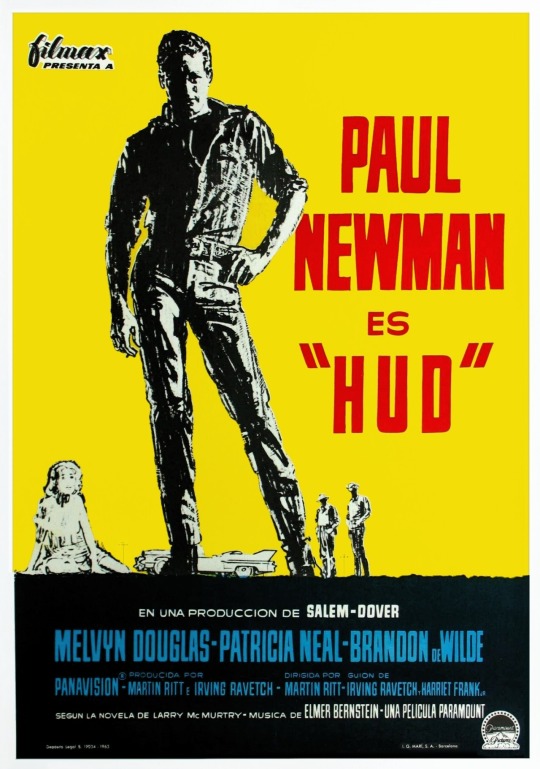
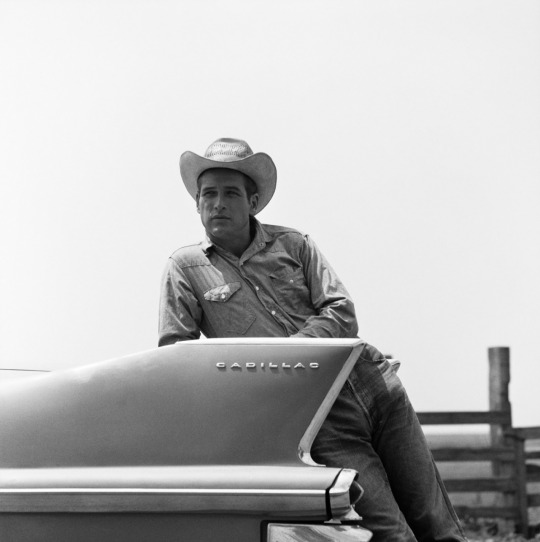
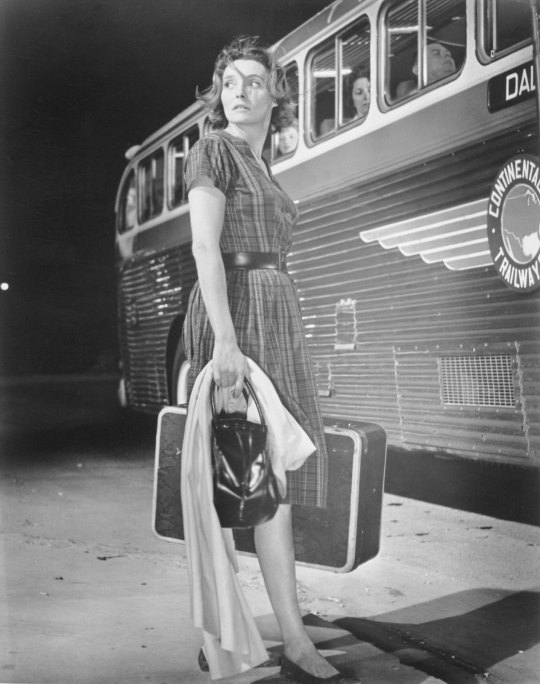
Hud (1963) Directed by Martin Ritt
Yes, we all enjoy Paul Newman in The Sting, Cat on a Hot Tin Roof, and The Long Hot Summer. For a few fans, Slapshot is a number one cult item. Characters Butch Cassidy and Cool Hand Luke are icons now. Yet in order to witness Newman embody a role—to lose himself in a character in the manner of Brando or Olivier—Hud is essential viewing.
Newman plays an ornery cuss named Hud Bannon, the ill-tempered, unredeemable son of rancher Homer Bannon (Melvin Douglas, dominating the screen). He’s a smartass in a Stetson and boots; he likes to drink hard and break hearts, and he can handle himself in a fight. He tears across the desert highway in a giant Cadillac convertible like he owns the state, and one might get the impression he was having a good time were it not for that Texas-size chip on his shoulder.
No one has a clue as to what’s really bothering Hud. His younger nephew (Brandon de Wilde in the wide-eyed-admirer role that he patented in the classic western Shane) is baffled, as are most of the folks foolish enough to get in Hud’s way. The family housekeeper (a mighty sexy Patricia Neal as a plain country girl whose plainness warrants a closer examination) is less baffled.
What’s obvious to her is that this fine old family line has finally produced a bonafide S.O.B — an heir abhorrent, as it were — who rejects and despises everything his father represents.
This is Greek tragedy stuff, made even larger than life by a bristling script that plays as well on its 60th birthday (this coming November) as when it first hit screens. It looks as good, too, compliments of cinematographer James Wong Howe’s breathtaking skill with a Panavision camera and black-and-white film stock.
7 notes
·
View notes
Link
0 notes
Text

Melvin Douglas-Ann Harding "Prestigio" (Prestige) 1931, de Tay Garnett.
5 notes
·
View notes
Link
Check out this listing I just added to my Poshmark closet: "THEODORA GOES WILD" B/W. DVD. NOT RATED. VINTAGE. 1936..
0 notes
Text

Pastor M. Gayle Dickson (June 27, 1948) known as Asali, was the only woman graphic artist for the Black Panther Party Newspaper (1972-74). She was born in Berkeley, California to James and Madeline Stowers. She began a pattern of drawing that was nurtured in the Oakland Public Schools. She graduated from Fremont High School and attended Laney Community College where she studied painting, she transferred to Merritt College.
She married Melvin Dickson (1966) they traveled to Seattle and joined the local chapter of the Black Panther Party. She painted a sign for the Sydney Miller Free Health Clinic and worked with the survival programs. She attended the University of Washington where she received additional art training and joined the Black Student Union. They relocated to Oakland in 1972 to work for the BPP Headquarters.
She was assigned to the graphic arts department where she met Emory Douglas, BPP Minister of Culture. She integrated more political and social commentary into her artwork which appeared on the back of the Intercommunal News Service. Her images focused on women and children to critique capitalism and urban poverty. They promoted the BPP’s 10-point program and the political campaigns of Elaine Brown and Bobby Seale. In 1974, she transferred to the Oakland Community School and was responsible for designing the letterhead, teaching pre-school art classes, and administrative duties. She left the BPP in 1976.
She graduated from Holy Names University BF. She worked for the City of Berkeley as an office clerk and was promoted to Assistant Analyst. She graduated from San Francisco Theological Seminary, graduating with an MDiv. She pastored the South Berkeley Community Church. where she fused her art and preaching as a way to minister to people. She introduced a Friday Night's Arts Dinner and sponsored a youth art exhibit. She maintained a full-time job as the Assistant Administrator for Sister Thea Bowman Manor/ Percy Abram Jr. Senior Apartments. In 2016, she retired.
She continues to paint, and teach and is a sought-after speaker in the Bay Area. #africanhistory365 #africanexcellence
0 notes
Text
A former basketball all-star, who has lost his wife and family foundation in a struggle with addiction, attempts to regain his soul and salvation by becoming the coach of a disparate ethnically mixed high school basketball team at his alma mater.
Credits: TheMovieDb.
Film Cast:
Jack Cunningham: Ben Affleck
Dan: Al Madrigal
Beth: Michaela Watkins
Angela: Janina Gavankar
Doc: Glynn Turman
Marcus Parrish: Melvin Gregg
Brandon Durrett: Brandon Wilson
Kenny Dawes: Will Ropp
Sam Garcia: Fernando Luis Vega
Chubbs Hendricks: Charles Lott, Jr.
Bobby Freeze: Ben Irving
Devon Childress: da’Vinchi
Father Edward Devine: John Aylward
Russ: T.K. Carter
Diane: Rachael Carpani
Kurt: Todd Stashwick
Anne: Nancy Linehan Charles
Gerry Norris: Dan Lauria
Sal: Chris Bruno
Coach Lombardo: Matthew Glave
Matty (Bartender): Jeremy Ratchford
Susan Norris: Jayne Taini
Father Mark Whelan: Jeremy Radin
Ryan: Nico David
Sarah: Emelia Golfieri
Sarah: Layla Golfieri
Miguel: Sal Velez Jr.
Sofia: Yeniffer Behrens
Sully – Ref #2: Eric Tate
Doctor: Christine Horn
Construction Worker #1: Josh Latzer
Construction Worker #2: Manny Streetz
David: Justice Alan
Liquor Store Owner: Jay Abdo
Lead Referee: Joshua Hubbard
Burly Man: James P. Harkins
Employee: Mike G.
Betty: April Adams
Haley: Chieko Hidaka
Student: Bronwen O’Connor
Student: Charlotte Evelyn Williams
Student: Kayla Diaz
Trinity Coach: Doc Jacobs
Gale: Marlene Forte
Ken: Shay Roundtree
Pat: Chad Mountain
Summit Coach: Sandy Fletcher
Opposing Coach: Noah Ballou
Female Friend – Nancy: Cynthia Rose Hall
Referee: Calvin Barber
Fish Scale Operator: Dino Lauro
Bishop Bench Player: Roman Mathis
Bishop Bench Player: Herbert Morales
Bishop Bench Player: Mateo Ortiz
Bishop Bench Player: Tyler O’Malley
Ethan (uncredited): Tom Archdeacon
Basketball Player 7 (uncredited): Brian Nuesi
Denise (uncredited): Edelyn Okano
Cheerleader (uncredited): Carly Schneider
Mike Ball Boy (uncredited): Caleb Thomas
Eric (uncredited): Hayes MacArthur
Basketball Player: Alexander Tassopoulos
Birthday Party Guest (uncredited): Mason Blomberg
Film Crew:
Producer: Gavin O’Connor
Producer: Jennifer Todd
Producer: Gordon Gray
Sound Mixer: Steven A. Morrow
Producer: Ravi D. Mehta
Set Decoration Buyer: Ellen Dorros
Boom Operator: Craig Dollinger
Utility Sound: Bryan Mendoza
Art Direction: Bradley Rubin
Costume Design: Cindy Evans
Director of Photography: Eduard Grau
Editor: David Rosenbloom
Executive Producer: Brad Ingelsby
Executive Producer: Mark Ciardi
Unit Production Manager: Bob Dohrmann
Executive Producer: Kevin McCormick
Executive Producer: Aaron L. Gilbert
Executive Producer: Jason Cloth
Executive Producer: Kaitlyn Taaffe Cronholm
Executive Producer: Madison Ainley
Production Design: Keith P. Cunningham
Casting: Wendy O’Brien
Co-Producer: Brittany Hapner
Original Music Composer: Rob Simonsen
Music Supervisor: Gabe Hilfer
Unit Production Manager: Victor Ho
Second Assistant Director: Kevin Lum
First Assistant Director: Jamie Marshall
Visual Effects Supervisor: Bruce Jones
Set Decoration: Douglas A. Mowat
Set Designer: Paul Sonski
Assistant Art Director: Linia Marie Hardy
Assistant Art Director: Brittany Bradford
Graphic Designer: Stephanie Charbonneau
Graphic Designer: Andrew Campbell
Art Department Coordinator: Michael LaCorte
Leadman: Fred Haft
Set Decoration Buyer: Jane Madden
Stunt Coordinator: Tom McComas
Stunts: Oliver Keller
Stunts: Courtney Farnsworth
Stunts: Allan Graf
Stunts: Craigory Glen Hunter
Stunts: Lauren Shaw
Stunts: B R Lamar
Stunts: David Rowden II
Property Master: J.P. Jones
Assistant Property Master: Rick Chavez
Script Supervisor: Steve Gehrke
“A” Camera Operator: Peter Rosenfeld
Still Photographer: Richard Foreman Jr.
“B” Camera Operator: Michael Merriman
First Assistant “A” Camera: Stephen MacDougall
Second Assistant “A” Camera: Jordan Pellegrini
First Assistant “B” Camera: Jesse Cain
Second Assistant “B” Camera: Seth A. Peschansky
Digital Imaging Technician: Jesse Tyler
Music Editor: Curt Sobel
Assistant Editor: Anna Rottke
First Assistant Editor: Joe Rosenbloom
Soun...

View On WordPress
0 notes